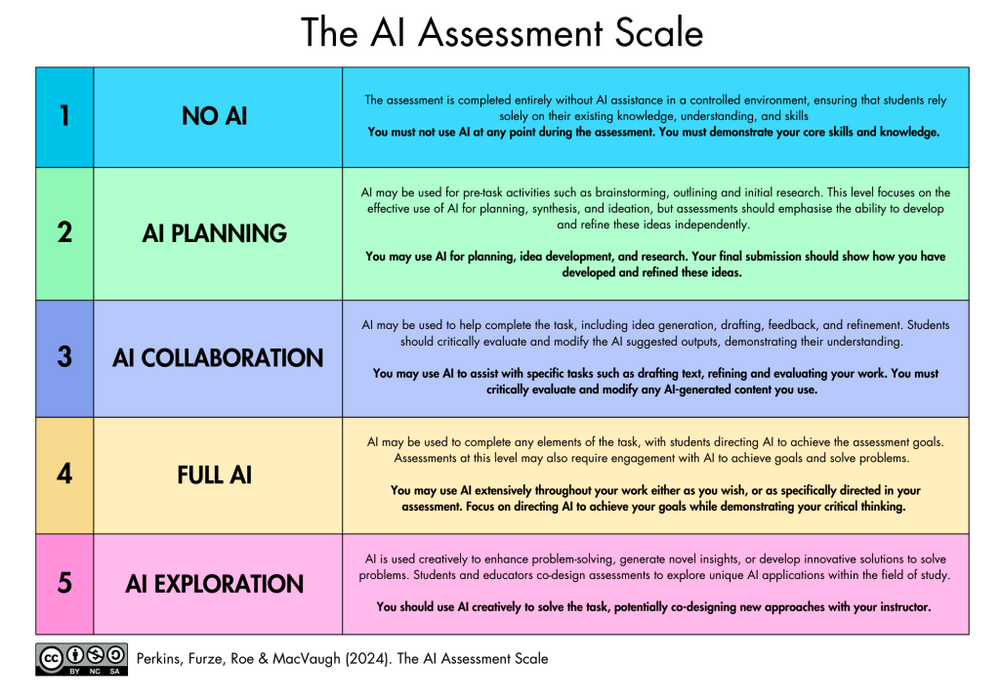
I don't know quite how I have managed to miss this up to now. The AI Assessment Scale (AIAS) has been around for over a year. On the occasion of updating to the latest version - see illustration above, Leon Furze, a Consultant, author and PhD candidate and one of the authors, said in his blog:
The original AIAS and its subsequent formal version (published in JUTLP) represents a moment in time where educational institutions across the world were reaching for something to help with the immediate problems of AI, such as the perceived threat to academic integrity.
Jason Lodge at University of Queensland and TEQSA refers to these as the acute problems of AI, but we recognise the need for robust frameworks that also tackle the chronic problems brought on in some ways by how we approach ideas of assessment and academic integrity in education.
So we have reflected on all of the versions of the AIAS we have seen across the world in K-12 and higher education. We have sought out critique and engaged with diverse perspectives, from school teachers to students, university lecturers, to disability activists, experts in fields including assessment security, cognitive sciences, and pedagogy.
And over the past months, we have refined and invigorated the AI Assessment Scale to bring it up to speed with our current understandings of generative AI and learning.
